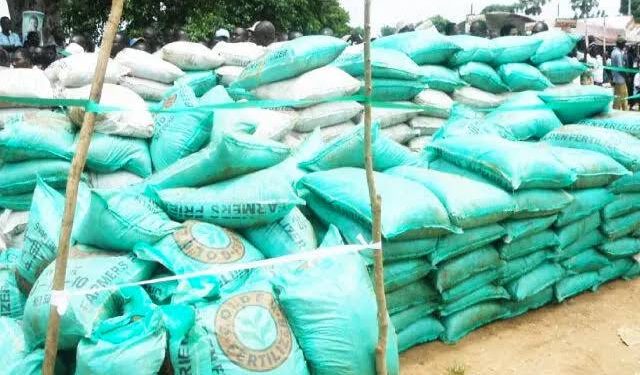As Nigeria prepares for the 2025 farming season, the Fertilizer Producers and Suppliers Association of Nigeria (FEPSAN) has expressed strong confidence in the country’s capacity to meet national fertiliser demand. In a press briefing held in Abuja, FEPSAN highlighted the robust stockpiles, supply arrangements, and collaborative efforts with government agencies to ensure a smooth and productive season.
According to the association, the sector has made significant strides in logistics, production, and regulation, laying the groundwork for an increase in fertiliser consumption. With 400,000 tonnes of NPK already in stock and substantial volumes of raw materials—including 80,000 tonnes of DAP, 60,000 tonnes of MOP, and 114,000 tonnes of locally-produced Granular Ammonium Sulphate—FEPSAN assured the public that preparations are well underway. Additional shipments of 150,000 tonnes of MOP and similar quantities of other key ingredients are expected to arrive between April and May.
FEPSAN President noted that the support of President Bola Tinubu’s administration has been instrumental in stabilizing fertiliser supply chains and reinforcing the Presidential Fertiliser Initiative (PFI). The association is working closely with the Federal Ministry of Agriculture to ensure that all fertilisers adhere to the standards outlined in the Fertiliser Quality Control Act of 2019. Special attention is also being paid to securing product movement in conflict-prone zones such as the North East, in collaboration with the Office of the National Security Adviser.
In an effort to improve efficiency and affordability, FEPSAN has identified and addressed hidden costs in logistics and packaging, which previously inflated fertiliser prices by up to 10 percent. The association also announced plans to further strengthen PFI-NPK Ltd, the key procurement entity for the fertiliser programme.
One of the highlights of the briefing was the industry’s pivot toward innovation. Working alongside research institutions, fertiliser producers are developing crop- and soil-specific blends tailored to Nigeria’s diverse agricultural needs. These customized solutions are not only more effective but could also prove more affordable for farmers in the long run.
Climate adaptation also featured in the discussion, with FEPSAN urging farmers to align their crop choices with the Nigerian Meteorological Agency’s Seasonal Climate Prediction. The focus, the association said, is now on promoting soil health through the production of balanced fertilisers, proper handling by agro-dealers, and responsible use by farmers.
The National President of the All Farmers Association of Nigeria (AFAN), who also spoke at the event, acknowledged the difficulties many farmers have faced in accessing fertiliser due to high costs. However, he welcomed FEPSAN’s efforts and called for sustained support for the 92 companies that have invested in fertiliser production across the country. He emphasized that the shift toward soil-specific fertiliser use could lower costs and increase accessibility for smallholder farmers, who are often the most affected by price fluctuations.
He stressed the importance of strict regulation, warning that any lapses could allow substandard or fake fertilisers into the market. While describing FEPSAN as a positive cartel that ensures quality, he urged for institutional support to close enforcement gaps.
Both FEPSAN and AFAN praised the ongoing government support for the sector and reaffirmed their commitment to ensuring that Nigerian farmers have timely access to affordable, high-quality fertilisers. As the new farming season approaches, stakeholders across the board appear aligned in their vision to improve agricultural productivity, food security, and national economic resilience.










